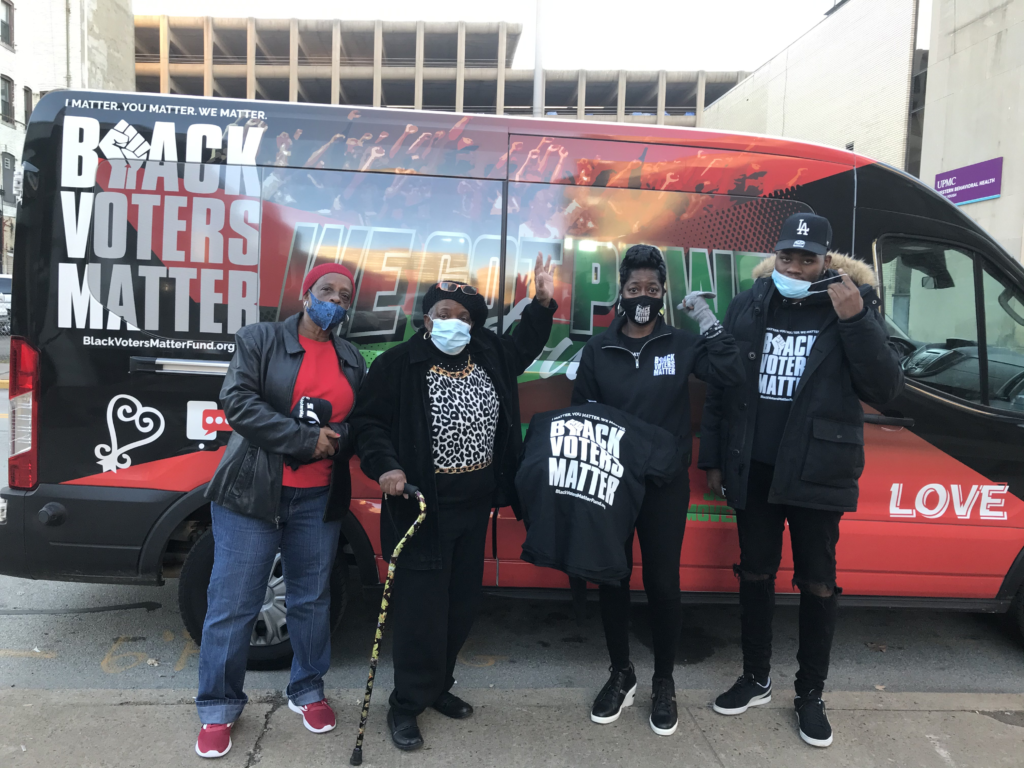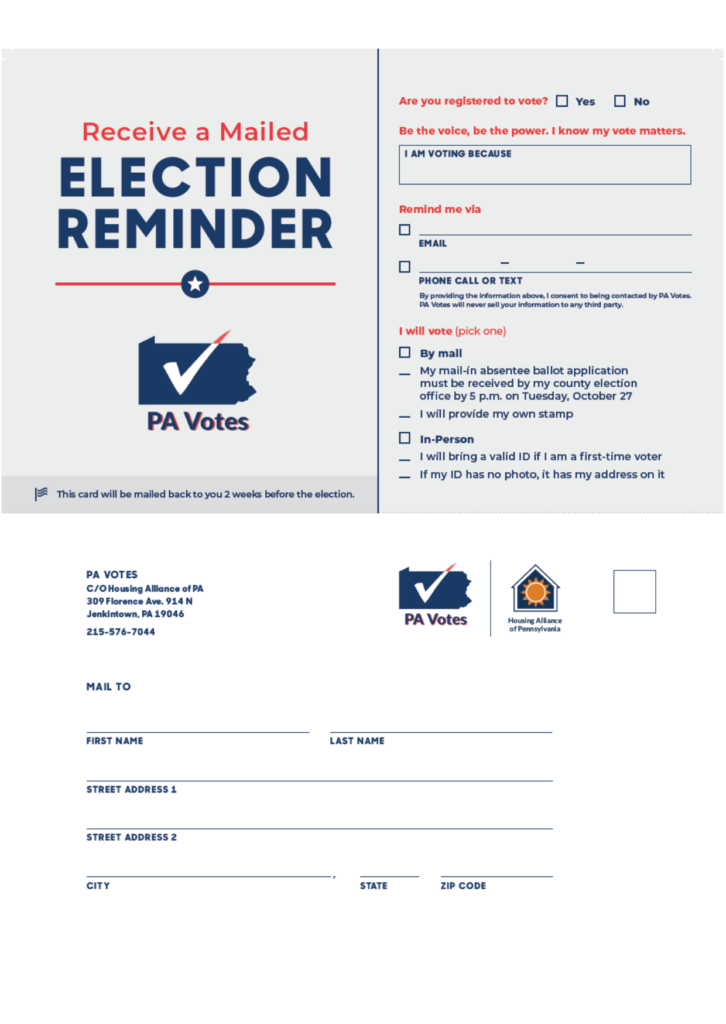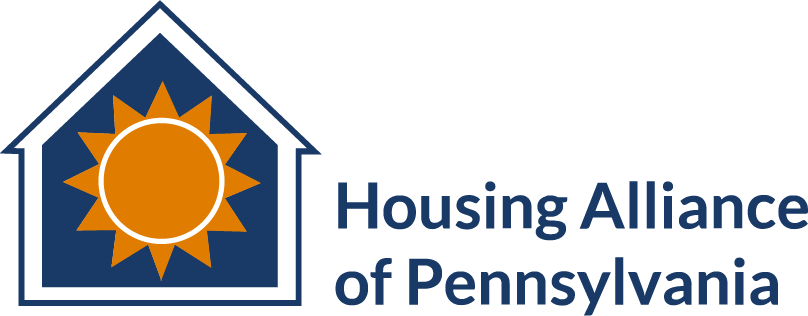
Housing Alliance of Pennsylvania
The Housing Alliance is a statewide coalition working to provide leadership and a common voice for policies, practices, and resources to ensure that all Pennsylvanians, especially those with low incomes, have access to safe, decent, and affordable homes. As a new anchor organization, the Alliance was able to boost advocacy efforts and engage many of their members in voter engagement for the first time through their PA Votes campaign.
See the list of collaborating organizations below.
Highest proportion of sites with a primary mission of physical and/or mental health services and advocacy

“We always look for opportunities to center our community and make the voices of the LGBTQ people in our region heard.”
Katie Suppes, Director of Programs, Research, & Evaluation, Bradbury Sullivan LGBT Community Center on the importance of engaging clients receiving services as voters.
Collaborating Organizations: Abilities in Motion, Alleghenies United Cerebral Palsy, Allentown Housing Authority, Anthracite Region Center for Independent Living (ARCIL), Arab-American Development Corp, Bradbury-Sullivan LGBT Community Center, Center for Independent Living of South Central PA, HACE CDC, Hunger Free PA – PA Food Banks, League of Women Voters Erie County Chapter, League of Women Voters of Philadelphia, Mental Health Association of NWPA, PHAN, Philadelphia Interfaith Hospitality Network, Rankin/Mon Valley/Pittsburgh Section of the National Council of Negro Women, Self Advocates United as 1, Third Street Alliance, Uptown Partners, and Voices for Independence
Pledge-to-vote card
In addition to asking people to register to vote, sites used pledge-to-vote cards that were customized for their state and featured PA Votes branding. Important elements of the card include:
- Prompt to identify reasons for voting
- Plan to vote
- Information about voter ID
- Designed to be mailed back to the voter who filled it out
Read more about creating pledge-to-vote cards in the Methods section of the Practitioner’s Report.

Site Case Study

About
Bradbury-Sullivan LGBT Community Center provides a vibrant, inclusive space in Pennsylvania’s Lehigh Valley for all of the region’s LGBTQ+ residents. As advocates for the LGBTQ+ community, they produce life-enriching arts and culture programs, leading-edge health programs, and ensure the critical supportive needs of the community are met. In addition to offering daily after school programs for LGBTQ+ youth and organizing the region’s annual pride festival, Bradbury-Sullivan makes the Lehigh Valley more equitable through their Training Institute.
Why voter engagement is important to the Bradbury-Sullivan LGBT Community Center
The center believes voter engagement is important to their organization because they serve LGBTQ+ youth and community members, a traditionally marginalized group. By offering voter registration, sharing reminders about upcoming elections and engaging the youth and community members they serve, Bradbury-Sullivan ensures LGBTQ+ people in Lehigh Valley have the information they need to participate in elections centering the needs of their community.
Incorporating Voter Registration at Intake
The center offers a variety of critical services for the LGBTQ+ community in LeHigh Valley Pennsylvania. One of those services is supporting the health and wellness of people they serve and in the surrounding community because the LGBTQ+ “community experiences health challenges at increased rates as a result of higher risk behaviors, which are caused in part by social and cultural experiences with discrimination, minority stress, and familial homophobia/transphobia.”
Their health and wellness work includes offering regular, free HIV and Hep C testing in partnership with Comprehensive Health Services at LeHigh Valley Health Network. During intake for testing, they asked people if they would like to register to vote or had any questions about the voting process. This strategy gave volunteers an opportunity to speak with voters directly and while they’re already filling out paperwork. It also allowed them to speak with voters one-on-one, giving them an opportunity to ask questions they may have about the upcoming elections such as how they can vote by mail, where they can find their polling location, and what kind of identification they need when they go to vote.
Voter registration asks are included in many of their intake processes year-round giving them the ability to meet people’s needs. Their HIV and Hep C testing and their free LGBT legal clinic, often serve the same people multiple times throughout the year. They are able to update voter registration when it is needed and top of mind. For example, someone they serve may have recently turned 18 or had a name change as a result of transitioning genders and need to update their registration. Giving voters the opportunity to register or update their information repeatedly ensures they’re able to vote in any upcoming elections.
Making Voter Registration a Party
Bradbury-Sullivan also offers a variety of support groups as part of their services to the LGBTQ+ community. Some of the groups include a community group for asexual and aromantic people, a BIPOC queer community group, and a parents-of-trans-kids group. One of the groups they support is an LGBTQ+ youth group. The group gives young people the opportunity to discuss how they can be advocates for their health and themselves, talk about their experiences, and more. As part of these discussions, they hosted a voter registration party.
Since the group already talked about advocacy, engaging them as voters felt like a natural step.
Young voters traditionally turnout at lower rates. They are less familiar with the process, the candidates, and are likely to have more questions. Talking to young people right as they turn 18 is a great way to create lifelong voters that represent the interests of the communities you serve. Once someone is registered to vote and casts a ballot for the first time, the process becomes easier.
The voter registration party gave Bradbury-Sullivan the opportunity to talk with the whole group about some of the questions the LGBTQ+ youth group members had about voting. Since many of them were registering to vote for the first time, talking about voter registration in a group where they are already used to having personal discussions made it easy for them to be open about any questions they had and celebrate getting prepared to vote for the first time. It also created space for them to talk about why voting is important to the communities they are a part of and can impact future policy and who represents them on the local, state, and national level.

